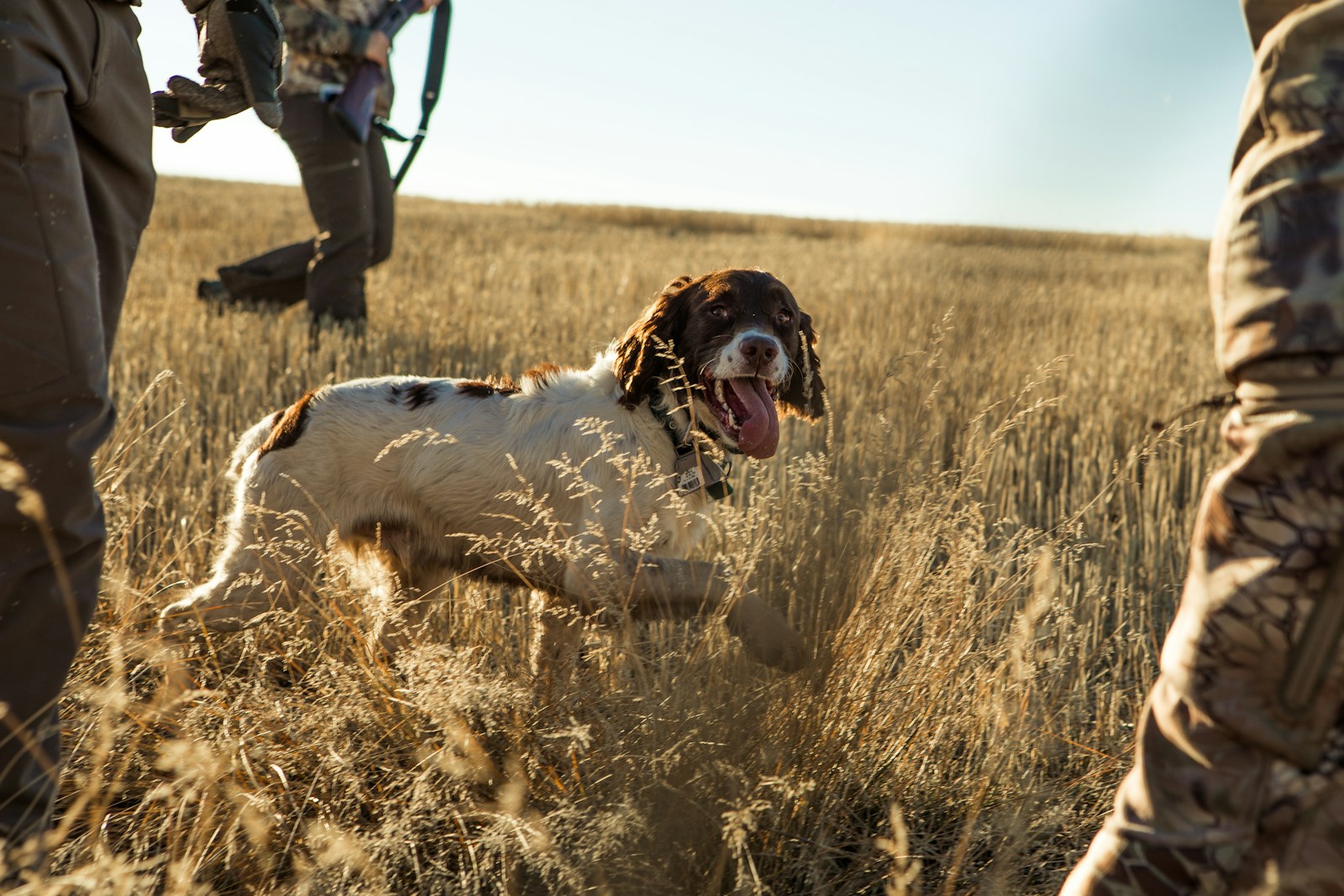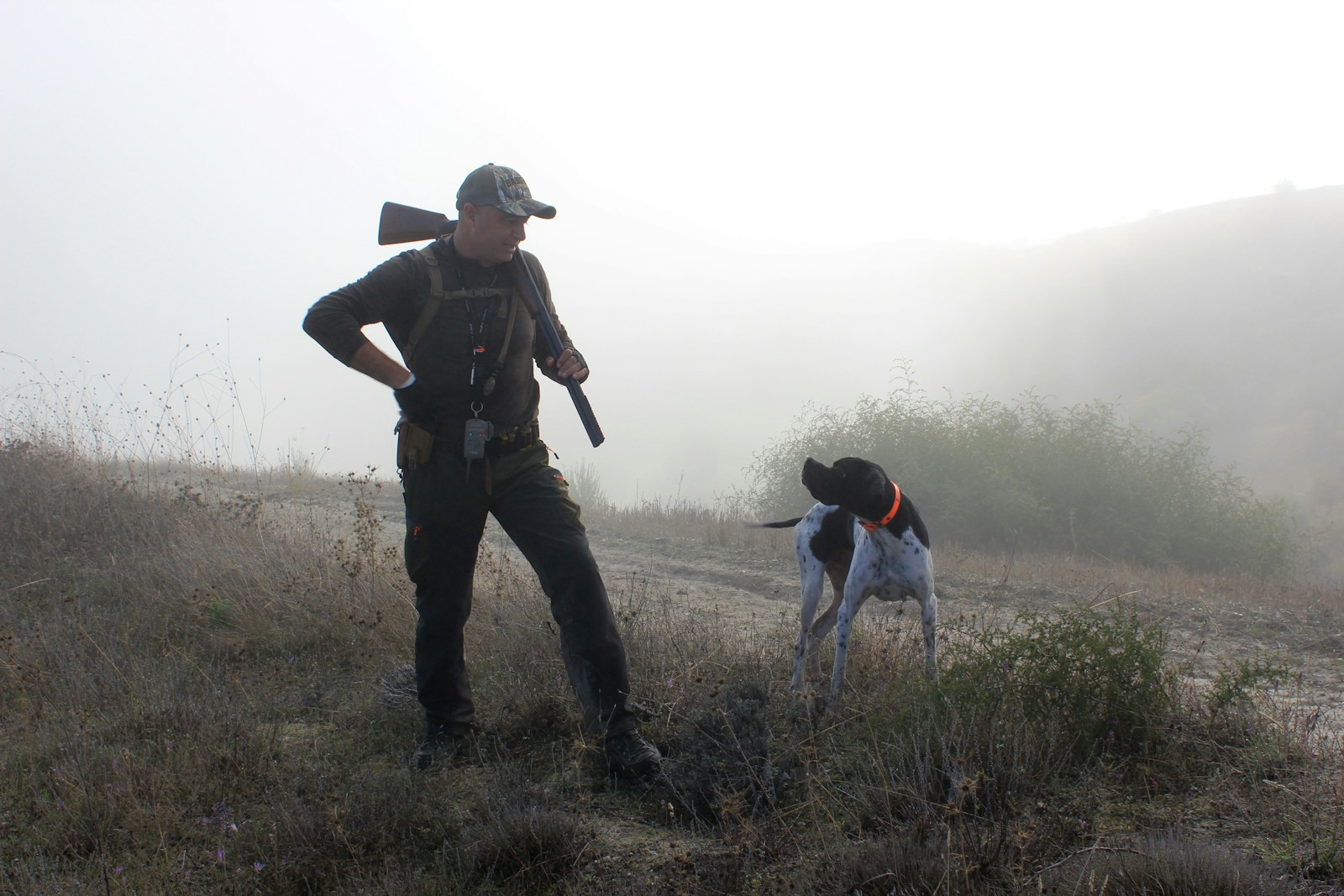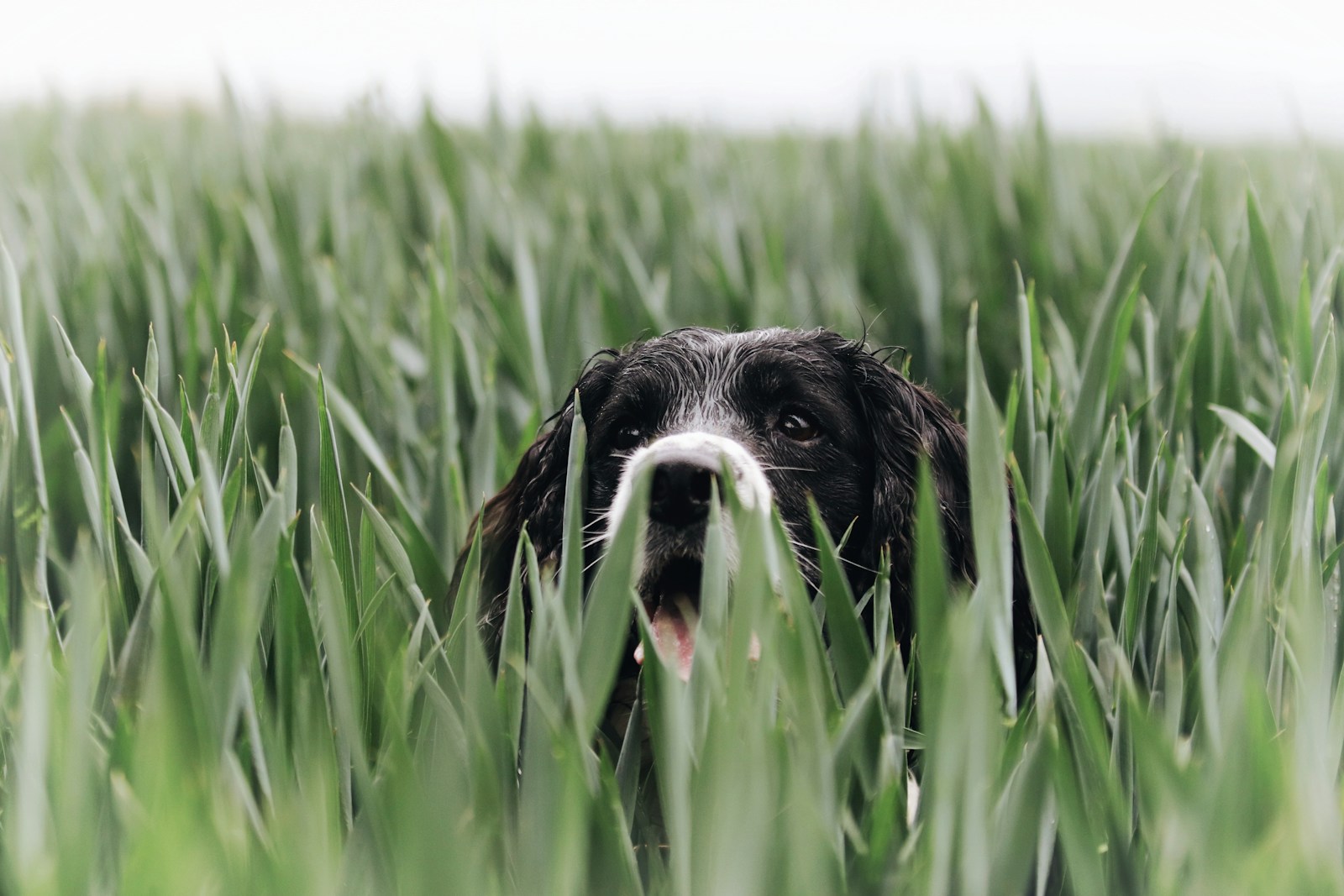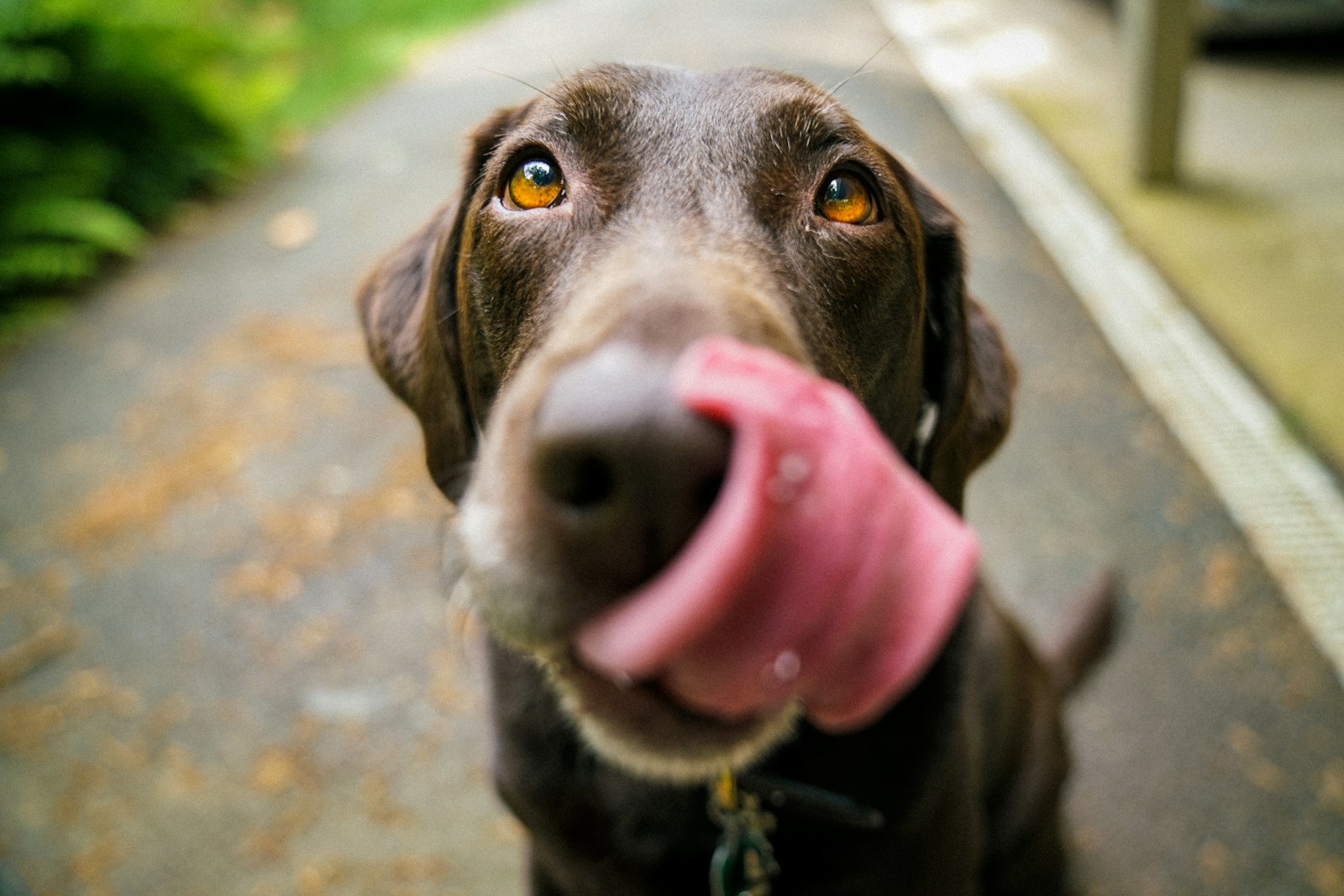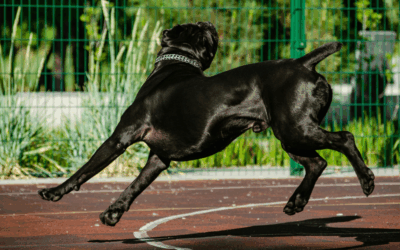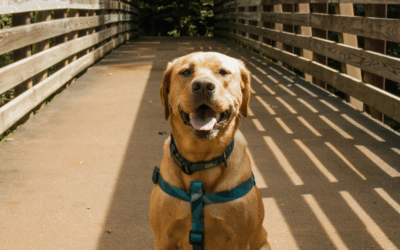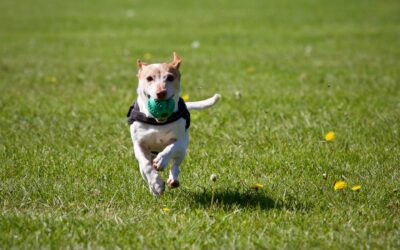Hunting with dogs has been an essential partnership for humans for thousands of years. A good hunting dog is more than just a companion in the field; they are a valuable member of your hunting team, improving success rates and turning an outdoor activity into an enhanced experience.
But not all dogs are built for the same kind of work. From flushing out upland game birds to retrieving waterfowl or tracking big game, choosing the right hunting dog breed is essential for satisfying your specific hunting needs and harsh terrain conditions.
Additionally, selecting the right breed for hunting large quarry, such as deer, moose, or bears, is crucial to ensure success and safety during your hunting adventures.
If you’re ready to find the ideal hunting companion, this guide covers the different types of hunting dogs, their distinct characteristics, and factors to consider when making your choice.
Introduction to Hunting
Hunting is an ancient practice that has been a part of human culture for thousands of years. It is a complex and multifaceted activity that involves not only the pursuit of game but also a deep connection with nature and a sense of community. For many hunters, their dogs are an integral part of the hunting experience, providing companionship, assistance, and a unique bond that is hard to find elsewhere.
Hunting dogs are more than just tools; they are partners in the field, each breed bringing its own set of skills and characteristics to the hunt. From the versatile Labrador Retriever, known for its ability to retrieve waterfowl, to the German Wirehaired Pointer, adept at tracking upland game, these dogs are bred for specific tasks that enhance the hunting experience.
Whether you are hunting small game or large quarry, the right hunting dog can make all the difference.
In this article, we will explore the world of hunting dog breeds, their characteristics, and what makes them such excellent hunting partners.
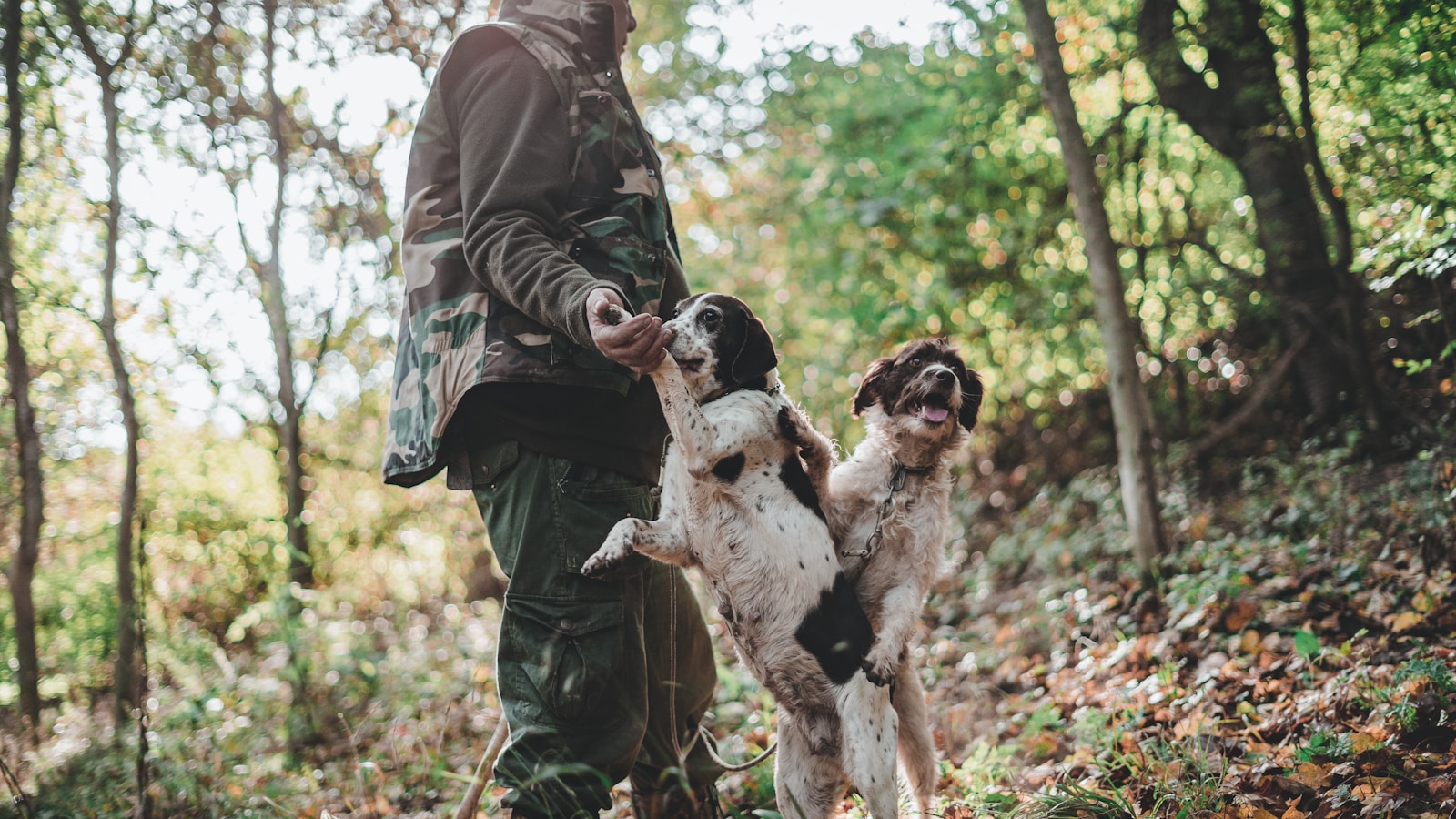
Characteristics of the Best Hunting Dogs
A great hunting dog possesses certain traits that make them reliable in the field.
Here are a few characteristics to look for when selecting your furry hunting partner:
- Keen Sense of Smell: A strong nose assists in tracking and locating game accurately.
- High Prey Drive: The instinctive motivation to pursue game is critical in the field.
- Trainability: A dog that is eager to learn and responsive to commands ensures better control.
- Endurance and Agility: Hunting often requires trekking through rugged terrain for long hours, so a hunting dog needs the stamina to keep up.
- Specific Skills: Traits like the ability to retrieve downed birds, flush game, or track wounded animals based on hunting needs.
With these traits in mind, let’s explore which breeds are best suited for different types of game.
Dog Breeds for Upland Bird Hunting
Upland bird hunting dogs handle dense cover and flush upland birds like pheasants, quail, or grouse.
Here are some standout breeds for this type of hunting:
1. English Springer Spaniel
Known for their high energy and excellent scent work, English Springers are akin to scent hounds, excelling at flushing upland game. They happily bound through thick vegetation to locate birds, and their gentle and loyal temperament makes them a hunter’s best friend.
2. German Shorthaired Pointer
These versatile hunters hunt birds with precision and retrieve seamlessly. German Shorthaired Pointers are energetic and well-suited to varying terrains, making them ideal for upland game.
3. Irish Setter
With their stunning red coats, Irish Setters are both visually striking and skilled. They cover large areas effortlessly, though their independence may require a more experienced handler.
In comparison, the English Setter is also a skilled bird dog known for its exceptional tracking abilities and rich hunting history, but it comes in varying sizes and styles, offering a different set of challenges and rewards for dedicated hunters.
4. English Pointer
The quintessential bird dog, English Pointers are fast, efficient, and reliable at locating birds from a distance. With their athletic build and incredible tracking abilities, they’re a classic choice for upland hunts. They can track different types of birds, including ruffed grouse.
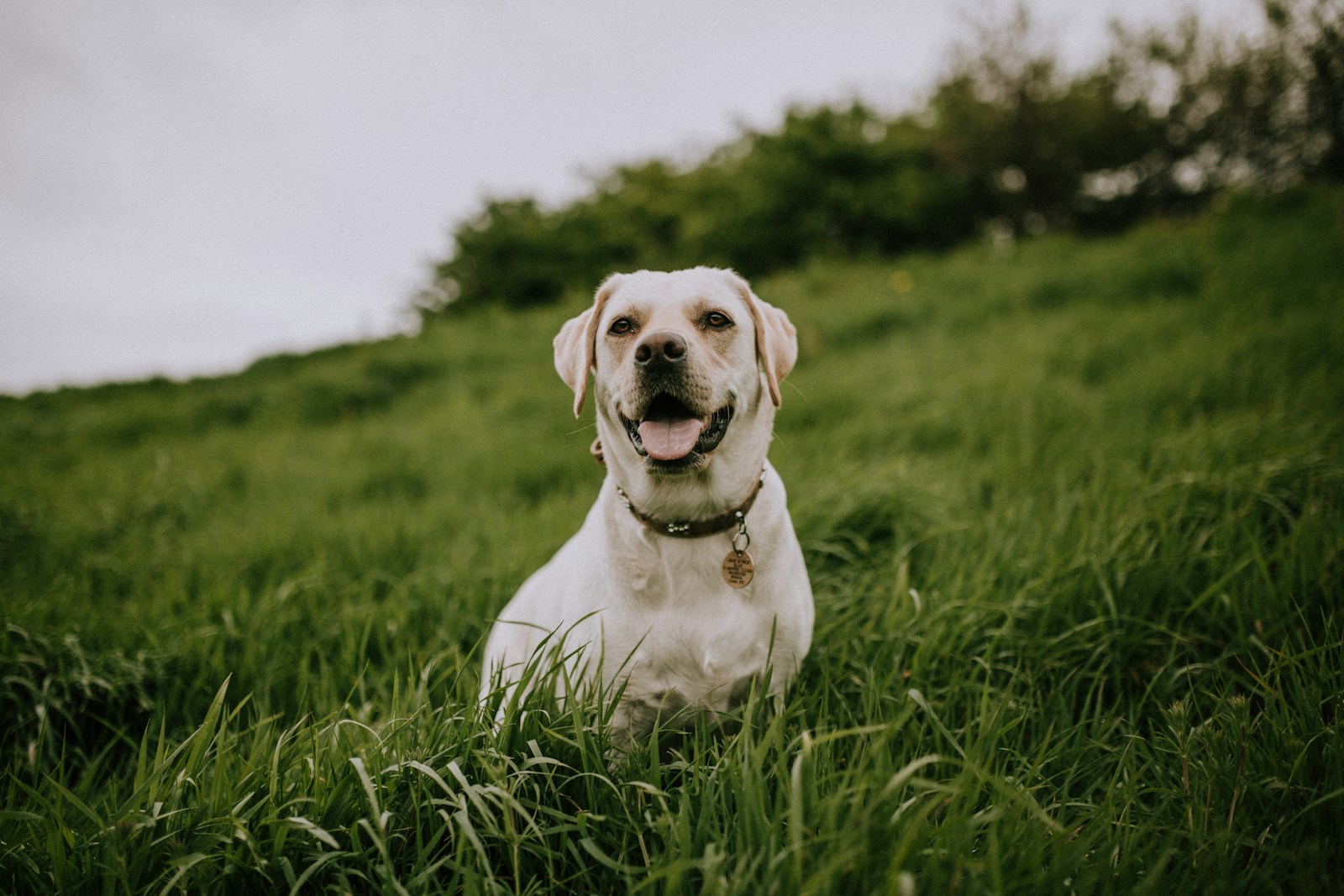
Waterfowl Hunting Dog Breeds
For waterfowl like ducks and geese, a dog must have a waterproof coat to brave cold waters and tirelessly retrieve downed birds. Here are the top breeds for hunting waterfowl:
1. Labrador Retriever
Labs are an all-time favorite for waterfowl hunting. With their love of swimming, gentle mouths to retrieve birds without damaging them, and friendly demeanor, they’re unbeatable in the field and at home.
2. Chesapeake Bay Retriever
Bred to tackle the harsh conditions of Chesapeake Bay, these rugged retrievers are excellent swimmers with water-repelling coats. They thrive in cold, wet, and inclement weather and are known for their determination.
The Chesapeake Bay Retriever became the first official state dog in 1964 when Maryland’s state government selected the breed. Named after the state’s famous bay region, this dog holds a special connection to Maryland’s heritage, over other breeds.
3. Boykin Spaniel
South Carolina’s state dog, this compact breed excels in retrieving feathered game, including waterfowl, in swampy or marshy conditions. Their eagerness to please and exceptional endurance make them incredible hunting companions.
4. Golden Retriever
Though famously loved as a family dog, Golden Retrievers are versatile hunters, adept at both waterfowl and upland bird hunting. As social dogs, their gentle nature and intelligence make them highly trainable and reliable.

Dog Breeds for Big Game Hunting
When hunting large game like deer, elk, or bears, you’ll need dogs with strong noses, endurance, and fearless attitudes.
The following breeds stand out for their big-game hunting abilities:
1. Treeing Walker Coonhound
Bred for tracking raccoons and treeing game, this hound breed is known for its stamina and distinctive baying voice. Perfect for long hunts in rugged terrain.
2. Karelian Bear Dog
A fearless hunter originally bred to pursue bears, large mammals, and other large prey, these dogs require an experienced handler who can meet their high energy and prey drive.
3. Mountain Cur
Strong, agile, and tenacious, Mountain Curs are excellent for big game hunting. They are particularly reliable when navigating rocky terrain or uneven landscapes.
4. Norwegian Elkhound
This ancient breed has been used for hunting elk and moose for centuries. As a versatile working dog, known for their loyalty and bravery, Elkhounds are ideal for tracking large quarry in challenging conditions.
Health and Nutrition
A hunting dog’s health and nutrition are crucial to their performance and overall well-being. A balanced diet that includes high-quality protein, complex carbohydrates, and healthy fats is essential for maintaining their energy levels and supporting their physical health.
Hunting dogs, like the energetic Labrador Retriever or the agile German Shorthaired Pointer, require a diet that fuels their active lifestyles and keeps them in peak condition.
Regular exercise is equally important. Breeds such as the Irish Setter and the English Springer Spaniel thrive on physical activity and need plenty of opportunities to run, play, and train.
Mental stimulation is also vital to prevent boredom and stress, which can lead to behavioral problems. Engaging your dog in training sessions, hunting simulations, and interactive play can keep their minds sharp and focused.
Grooming is another critical aspect of maintaining a hunting dog’s health. Breeds with longer coats, like the Irish Setter, need regular brushing to prevent matting and tangling, while short-haired breeds like the German Shorthaired Pointer benefit from routine grooming to keep their coats healthy and clean.
By providing a nutritious diet, regular exercise, and proper grooming, hunters can ensure their dogs remain happy, healthy, and ready for the hunt.
Grooming and Maintenance
Grooming and maintenance are essential aspects of dog care, particularly for hunting dog breeds. Regular grooming helps to prevent matting and tangling of their coats, while also reducing the risk of skin irritations and infections.
Spaniel breeds, such as the English Springer Spaniel, require frequent brushing to keep their coats free of debris and tangles. Similarly, the Irish Setter’s beautiful red coat needs regular attention to maintain its condition.
Breeds like the German Wirehaired Pointer and the Labrador Retriever have different grooming needs. The German Wirehaired Pointer’s dense, wiry coat requires regular brushing to remove dead hair and prevent matting, while the Labrador Retriever’s short, water-resistant coat benefits from occasional grooming to keep it clean and healthy.
Regular nail trimming and ear cleaning are also important for all hunting dogs to prevent injuries and infections.
In addition to grooming, maintaining your dog’s equipment is crucial. Ensure that collars, harnesses, and other gear are in good condition and fit properly.
This not only ensures your dog’s comfort but also their safety in the field. By staying on top of grooming and maintenance, hunters can help prevent injuries and illnesses, ensuring their dogs remain comfortable and productive in the field.
Hunting Safety and Ethics
Hunting safety and ethics are critical components of the hunting experience. Hunters have a responsibility to ensure that they are hunting in a safe and responsible manner, not only for themselves but also for their dogs and the environment.
This includes following all relevant laws and regulations, respecting private property and wildlife habitats, and avoiding unnecessary risk-taking.
Hunting dog breeds such as the Treeing Walker Coonhound and the Karelian Bear Dog are bred for their exceptional ability for their tracking game and tree game, but they also require careful handling and training to ensure that they are working safely and effectively.
Proper training is essential to ensure that your dog responds to commands and understands the boundaries of the hunt and outdoor adventures. This not only keeps your dog safe but also ensures a more successful and ethical hunting experience.
By prioritizing safety and ethics, hunters can help promote a positive and sustainable hunting culture. This includes being mindful of the environment, ensuring that game is hunted responsibly, and that all parts of the animal are used respectfully.
Protecting yourself, your dogs, and the environment ensures that hunting remains a respected and cherished tradition for generations to come.
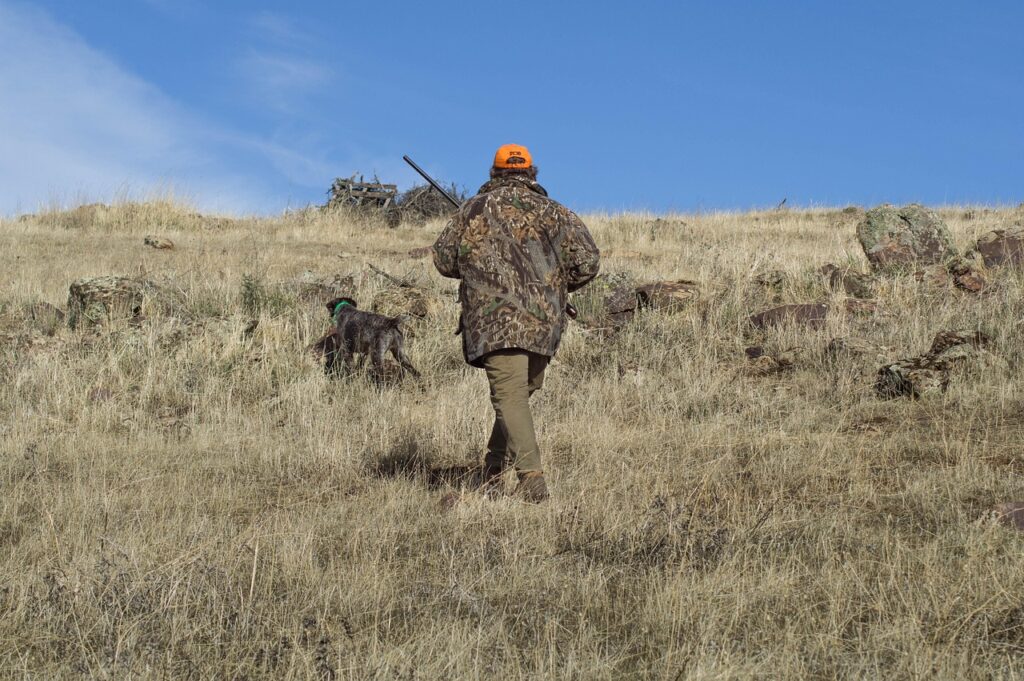
Factors to Consider When Choosing a Hunting Dog
Selecting the perfect hunting partner requires evaluating several factors, including the many breeds available, each with unique skills suited for different aspects of hunting:
- Hunting Needs: The type of game you hunt determines whether you need a retriever, pointer, or tracker.
- Terrain and Weather: Breeds like the Chesapeake Bay Retriever excel in cold, wet climates, while others suit dry, open fields.
- Energy Levels: Ensure the breed matches your activity levels; high-energy breeds need rigorous exercise.
- Training Effort: Some breeds, like Irish Setters, require patient and experienced handlers. If you’re looking to compete in any National Dog Shows, consider the types of hunting dogs that are mostly in those shows and consider one of them.
- Home Life Compatibility: If the dog will double as a family pet, consider breeds like Labradors or Retriever breeds, which are social and adaptable.
Training and Socialization for Hunting Dogs
A well-trained dog is essential for a safe and enjoyable hunting experience. Start with basic obedience commands like “sit,” “stay,” and “come,” and gradually introduce specific hunting skills.
Socialization also plays a crucial role. Regular exposure to various environments, people, and other dogs ensures your hunting partner is confident and focused in the field.
A versatile dog, like the Jack Russell Terrier, showcases the importance of adaptability in hunting dogs, being effective in tracking both large game and in traditional hunting settings.

Give Your Hunting Dog the Fun They Deserve!
Every working dog breed needs a break. After spending long hours in the field, why not treat your pup to some fun at Snouts & Stouts, the #1 indoor dog park and bar in Northern Virginia?
- Indoor, Climate-Controlled Space: Perfect for year-round fun.
- Separate Play Areas: Tailored for both small and large dogs.
- Relax at the Bar: While your hunting partner plays, enjoy a drink and socialize with fellow dog lovers.
Plus, don’t miss their upcoming breed meet-ups for even more canine-fueled excitement! Visit Snouts & Stouts and give your hunting companion the recognition (and playtime) they deserve.
